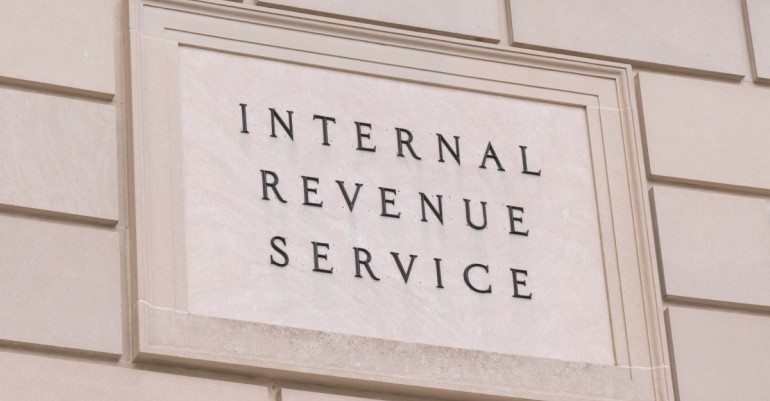
If you think the Big Brother in government is bad now, wait until the Internal Revenue Service has permission to peer into your bank account every time more than $600 goes in or out of your account.
A proposal lumped into the Build Back Better reconciliation spending bill from Democrats requires financial institutions to turn over private citizens’ personal bank account information to the Internal Revenue Service if they exceed $600 of inflows or outflows in an account. A coalition of trade, agriculture and business associations is standing up to oppose changes to those tax information reporting requirements that would affect nearly every American with a bank account.
“Intended to help the IRS target wealthy tax dodgers, the unintended consequence is the overly broad proposal will directly impact almost every American and small business with an account at a financial institution,” read the coalition letter to Congressional leaders.
“Lawmakers must fully understand the breadth of taxpayers who would be receiving a new form from their financial institution – almost every American who has a bank or credit union account and has gross inflow and outflow of at least $600. While recent proposals suggest that increasing the de minimis threshold to $10,000 is less objectionable, this is a flawed assumption and will not significantly reduce the scale of this new IRS program,” the coalition adds.
John Newton, senior ag economist for Senate Agriculture Committee ranking member John Boozman, says Boozman among other Republicans have been very concerned about the proposed increased reporting requirements to help pay for the reconciliation package.
The Patriot Act is why the original $10,000 requirement was first put into place for monitoring financial transactions to go after those who may be funding terrorism efforts. “Now if you reduce it to $600, that puts an incredible onus on farm families and rural communities and families across the country,” says Newton.
In a letter in mid-September to House leaders from colleagues joining Rep. Randy Feenstra, R-Iowa and Rep. Tom Emmer, R-Minn., they note financial institutions currently report a tremendous amount of data to the IRS, and no evidence has shown that the proposed requirements would substantially aid the IRS’s efforts to close the tax gap beyond the information already at the IRS’s disposal.
“Not only would such an overly comprehensive IRS database require significant resources to build, maintain, and protect, but it would make the personal, financial data of millions of Americans vulnerable to attack,” the representatives write. “Considering the IRS experiences 1.4 billion cyberattacks annually and has experienced multiple data breaches, we should not give this agency additional sensitive data to manage.”
The coalition letter also notes the privacy concerns for Americans are real and should not be taken lightly. “The IRS is not impervious to being hacked and has suffered massive data breaches in the recent past where the personal information of taxpayers was stolen. According to the Treasury Department, they only plan to use the data to increase the audits for those who make over $400,000 a year. The likely question of any American taxpayer making less than that is: Why does the IRS need my account information if they aren’t going to use it?”
“We believe that this program is costly for all parties, not fit for purpose and loaded with the potential for unintended and serious negative consequences,” the farm coalition groups add. “As associations representing a broad cross-section of financial and business interests, we urge you to oppose any efforts to institute this new reporting regime.”
On behalf of its members, the American Bankers Association and state bankers associations representing banks in urban, rural and suburban communities across the country also voiced their concerns.
“We again urge policymakers to consider the massive amount of information that will be generated by this proposed regime and its implicit presumption that all taxpayers are not honoring their tax obligations,” ABA writes. “Please evaluate the proposal at its face: the unprecedented generation of taxpayer information, most of which will be irrelevant to the calculation of taxpayers’ taxable income, being transmitted and stored in an uncertain environment, with significant cost to taxpayers and financial institutions.”
Changes to the estate tax and stepped-up basis most certainly may keep farmers up at night, but this very well could make you instantly sick. It’s time to let your legislator know the impact.
About the Author(s)
You May Also Like






